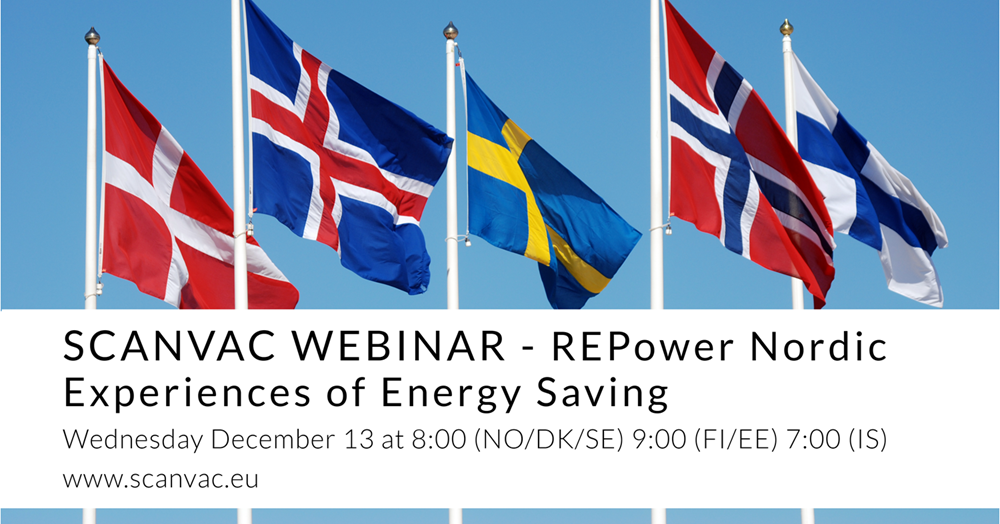In response to the hardships and global energy market disruption caused by Russia's invasion of Ukraine, the European Commission is implementing its REPowerEU Plan. The European Union launched REPowerEU, an ambitious plan to reduce EU dependence on fossil-fuel imports and accelerate the green transition.
Saving energy is the cheapest, safest, and cleanest way to reduce our reliance on fossil fuel imports from Russia. Different member states and industry have all contributed to this. This webinar aims to share experiences of energy-saving measures conducted in Nordic countries and discuss possible challenges we have had in reducing peak power and energy demands.
Saving energy is the cheapest, safest, and cleanest way to reduce our reliance on fossil fuel imports from Russia. Different member states and industry have all contributed to this. This webinar aims to share experiences of energy-saving measures conducted in Nordic countries and discuss possible challenges we have had in reducing peak power and energy demands.
Program and presentations
Opening and welcome
Risto Kosonen, President of SCANVAC
Colder air without adequate ventilation can increase the risk of mold
Lars Gunnarsen, Indemiljørådgiver Aps
Experiences from the Energy Saving Program at Senate Properties
Tapio Jalo, Senior Specialist at Senate Properties
Helicopter view of market-based energy saving measures in Estonian commercial buildings
Siim Meeliste, CEO of Tepsli OÜ
Poor indoor air quality and mold in homes in the wake of overcrowding and higher living costs and energy prices?
Linda Hägerhed, Associate Professor at the University of Borås
Risto Kosonen, President of SCANVAC
Colder air without adequate ventilation can increase the risk of mold
Lars Gunnarsen, Indemiljørådgiver Aps
Experiences from the Energy Saving Program at Senate Properties
Tapio Jalo, Senior Specialist at Senate Properties
Helicopter view of market-based energy saving measures in Estonian commercial buildings
Siim Meeliste, CEO of Tepsli OÜ
Poor indoor air quality and mold in homes in the wake of overcrowding and higher living costs and energy prices?
Linda Hägerhed, Associate Professor at the University of Borås
